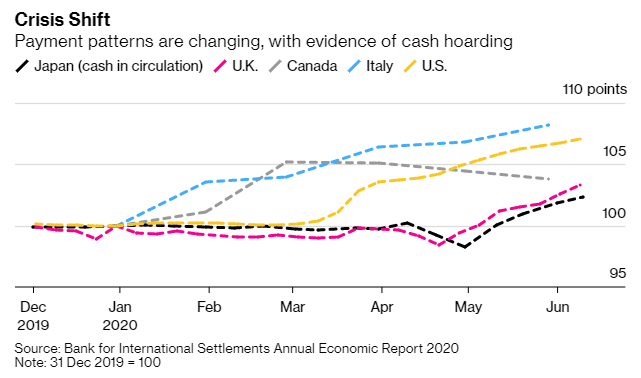“Panic-Driven Hoarding Of Bank Notes”: People Aren’t Abandoning Cash During The Pandemic, They’re Socking It Away
Habits change in the midst of a global recession, not to mention a global pandemic. We have already looked at how the pandemic has caused seismic shifts in many industries, but it is also causing a shift in how people think about, handle and (in this case) hoard cash.
While we have been told non-stop that the pandemic is going to prompt the demise of paper currency and the words “digital dollar” continue to make appearances in government white papers and studies, the Bank of England found that there was actually a marked increase in bills in circulation in places like the U.S., Canada, Italy, Spain, Germany, France, Australia and Russia.
And while we continue to hear arguments about a cashless society being more efficient and less virus-friendly, it would still pose a major challenge to implement and would – in the case of this study – directly contradict how people are handing their cash during the global pandemic, according to Bloomberg.
Charles Goodhart and co-author Jonathan Ashworth wrote in their study: “While the economic shutdowns and increased use of online retailing are currently diminishing cash’s traditional function as a medium of exchange, it seems that this is being more than offset by panic driven hoarding of banknotes.”

“Cash in circulation has actually been growing strongly,” they continued. And while it may just be a small portion of a percentage of the cash that Central Banks have printed, the velocity of money can’t be ignore for inflationary purposes.
The research stands at odds with President Donald Trump’s former economic adviser Gary Cohn, who recently advocated for the disappearance of cash. Up until now, cash use has been on the decline due to credit cards and electronic transferring of money.
…click on the above link to read the rest of the article…